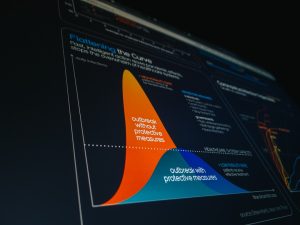
In the fast-paced world of software development, productivity is key. Developers are always seeking innovative ways to streamline workflows, reduce debugging time, and generate code more efficiently. One such breakthrough technology that has recently gained attention is Gemini AI, Google’s multimodal AI assistant. Designed to respond intelligently to natural language inputs, Gemini AI can dramatically enhance the way developers tackle their coding projects, from planning and prototyping to debugging and documentation.
What Is Gemini AI?
Gemini AI is Google’s advanced artificial intelligence engine that integrates large language model capabilities into day-to-day tasks. Unlike traditional code editors or IDEs that offer static autocomplete features, Gemini AI leverages advanced machine learning and natural language understanding to engage in dynamic code generation, explain complex algorithms, suggest optimizations, and even debug code.
Whether you’re starting a new application or managing an existing one, Gemini AI can serve as a powerful pair-programming assistant, helping you to stay focused on solving problems rather than getting bogged down in repetitive tasks.

How Gemini AI Can Be Used in Coding Projects
1. Generating Boilerplate Code
One of the most time-consuming tasks in programming is writing boilerplate code. With Gemini AI, developers can simply describe what they need in natural language, and the AI can auto-generate the corresponding code structure. For instance, if you need a REST API using Express.js, you can just type “create a REST API for a to-do list using Express.js” and Gemini AI will provide a complete code snippet.
2. Explaining Complex Code
When working with unfamiliar codebases or legacy systems, understanding what’s going on can be a major hurdle. Gemini AI is capable of explaining complex sections of code in plain English. This makes it easier for developers to onboard new team members or refresh their own understanding.
3. Real-Time Bug Detection and Fixes
Gemini AI can analyze existing code in real-time and identify common bugs or inefficiencies. It doesn’t just point out the bugs; it also offers suggestions or provides corrected code snippets. This can significantly reduce the debugging process, allowing developers to ship more reliable software faster.
4. Writing Unit Tests
Writing unit tests is crucial but often neglected due to time constraints. Gemini AI can automatically generate effective test cases based on the logic of your functions. This ensures better test coverage and helps in maintaining a more robust codebase.
5. Streamlining Documentation
Gemini AI can help generate detailed documentation just from your codebase or given prompts. It can create README files, inline documentation, and even architecture diagrams if given the right context. This helps in making the codebase more understandable and maintainable.
6. Learning and Experimenting with New Languages
For developers looking to learn a new programming language, Gemini AI acts as an on-demand tutor. You can ask it to translate your Python code into Go, explain the syntax differences, or even give you a beginner-level tutorial tailored to a specific language.

Best Practices for Using Gemini AI in Your Dev Workflow
1. Start with Clear Prompts
Gemini AI performs best when given clear, concise instructions. Rather than saying “make an app,” try “create a simple React application with authentication using Firebase.” Detailed prompts result in more accurate and usable code snippets.
2. Use It as a Pair Programmer
Don’t rely solely on Gemini AI; treat it as an intelligent partner. Let it help with repetitive tasks, while you focus on core logic, system architecture, and business-specific requirements. This balance helps maintain developer creativity while enhancing productivity.
3. Validate AI Suggestions
While Gemini AI is intelligent, it’s still an assistant. Always review and test the code it suggests to ensure that it meets your performance and security standards. Use automated testing frameworks to verify functionality accordingly.
4. Iterative Refinement
Refine your prompts based on the output. If you’re not satisfied with the result, adjust the input with specific terms or structure. The more you interact, the better you learn to harness its full potential.
5. Keep Security in Mind
Be cautious about feeding in sensitive or proprietary information. Although Gemini AI models are designed to respect user confidentiality, best practices involve never exposing critical data in third-party tools.
Advantages of Integrating Gemini AI Into Your Project
- Faster Turnaround: Automates and accelerates time-consuming tasks.
- Code Quality: Suggests best practices, helping enhance maintainable and scalable code.
- Collaborative Learning: Acts as a constant source of knowledge and support.
- Reduced Burnout: By handling routine and tedious jobs, it allows developers to focus on fulfilling, high-level tasks.
Potential Limitations to Be Aware Of
Despite its many strengths, Gemini AI isn’t perfect. It can sometimes generate incorrect or outdated code if relying on older training data. Additionally, it may misinterpret vague prompts. This makes human oversight crucial when using the tool in production environments.
Also, like other AI tools, it doesn’t fully grasp project-specific business logic unless explicitly told. Developers must still manage architecture, business rules, and integration coherently.
Conclusion
Gemini AI represents a powerful leap forward in how developers approach coding projects. From generating robust code snippets to debugging, testing, and learning, it serves as an always-available coding companion. When used effectively and with caution, it can significantly enhance productivity, reduce manual labor, and inspire innovative development processes. Its ability to interact based on natural language makes it a highly accessible tool for both novice and experienced developers alike.
As the technology continues to evolve, integrating Gemini AI into your development workflow may soon become a standard practice — keeping you ahead in both performance and innovation.
Frequently Asked Questions (FAQs)
-
1. Can Gemini AI replace human developers?
No. Gemini AI is a productivity tool that assists developers, but it cannot replace human creativity, critical thinking, and the ability to understand business requirements. -
2. Which languages and frameworks does Gemini AI support?
Gemini AI supports a wide range of programming languages including Python, JavaScript, Java, C++, Go, and frameworks like React, Angular, Django, and more. -
3. Is Gemini AI free to use?
There may be basic free versions available, but advanced features could be gated behind a subscription or enterprise license. -
4. Can Gemini AI help with existing projects?
Yes. You can paste code or describe your current project, and Gemini AI can assist with code analysis, suggestions, bug fixes, and documentation. -
5. How secure is Gemini AI for code with sensitive data?
You should avoid sharing sensitive code unless you’re using a secured, enterprise-level version that guarantees data privacy and encryption. -
6. Is there a learning curve?
Minimal. Once familiar with prompt engineering and the tool’s capabilities, most users find Gemini AI intuitive to use.






